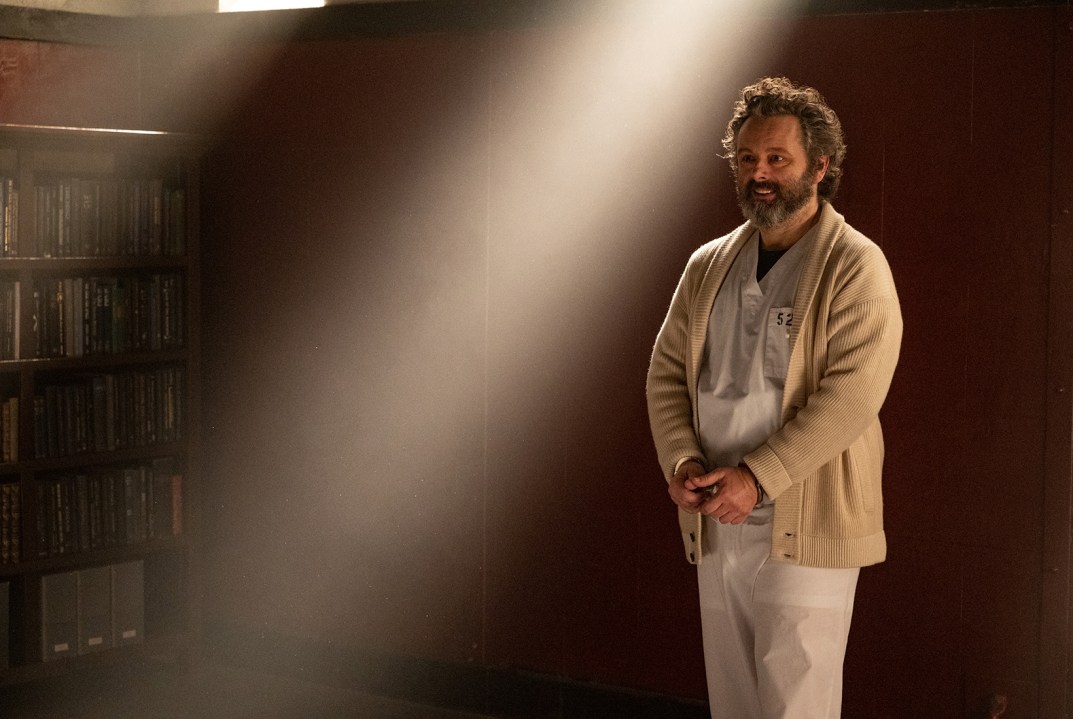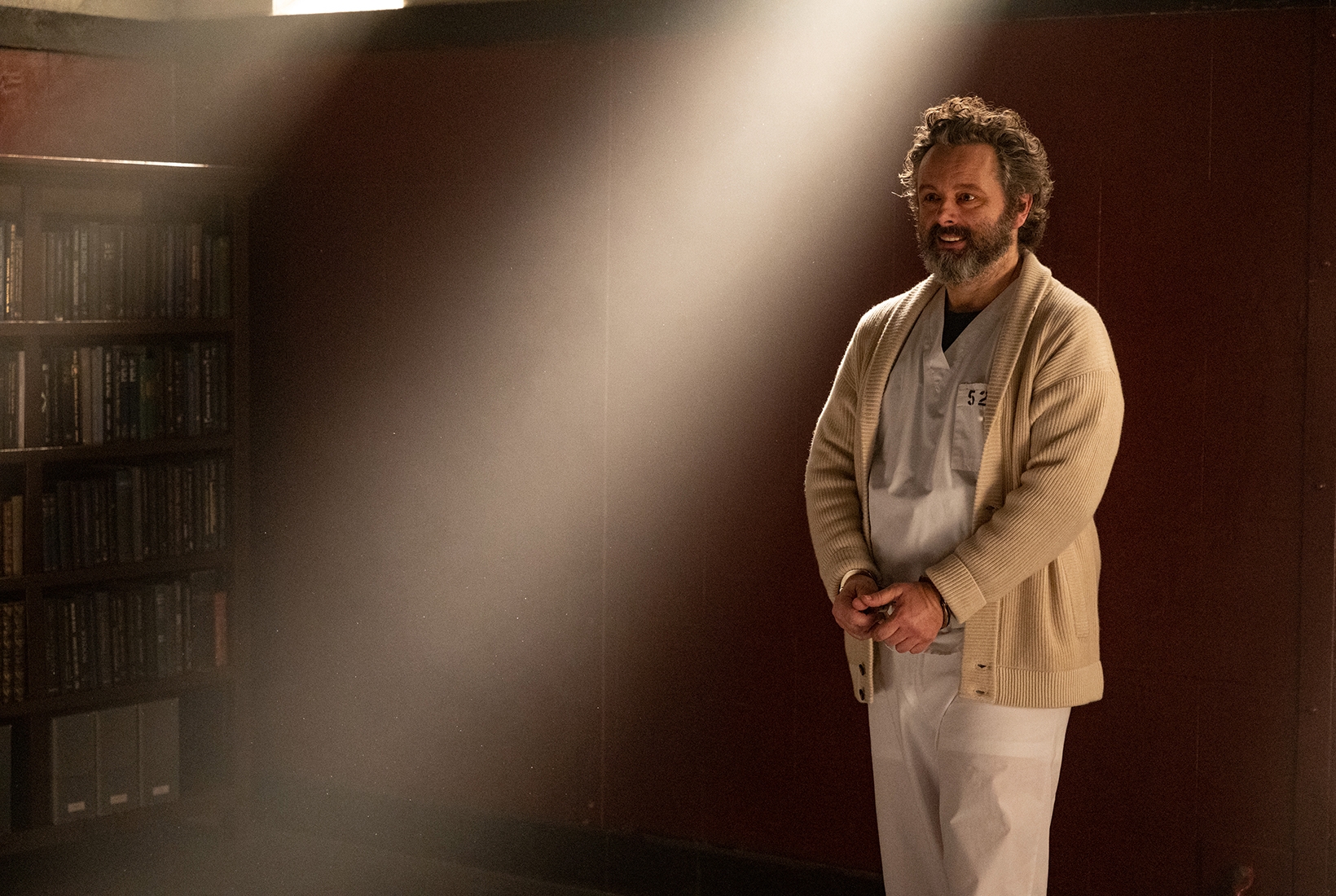‘By the way, my name is Max. I take care of them, which ain’t easy, because their hobby is murder.’ Back in the early 1980s, when everything was lovelier, we were all so innocent that our idea of a brilliant and original new detective formula went like this: they’re sleuths — but they’re also rich and married! (Or, in the case of Magnum: he’s a sleuth — but he has a moustache and he lives on Hawaii! Or, with Bergerac: he’s a sleuth —but he lives on Jersey and is named after a region of France. Etc.)
These days, we are a lot more jaded and knowing and series creators have to work harder when devising their high-concept set-ups. The premise of Prodigal Son, for example, is that one half of the crime-battling duo is Malcolm Bright (Tom Payne), a semi-deranged prescription drug addict working for the New York Police Department while the other is his dad Martin (Michael Sheen), a behind-bars serial killer who used his surgical skills to inflict especially excruciating deaths on his victims.
Prodigal Son is perfectly aware of how ludicrous it is and doesn’t take itself very seriously
Before watching it, I outlined the premise to Boy, and he instantly reeled off all the influences — from Silence of the Lambs, Hannibal and Dexter to House — and described in some detail how it would work out. ‘High-functioning, maverick individual beset with flaws’, the authorities with whom he works constantly saying to him ‘you’ve gone too far this time’ and forever trying to rein in his unconventional genius; sidekicks constantly torn between scepticism and admiration. He was right on all counts but then he does watch an awful lot of television, almost as if it were his raison d’être. Recently, for example, he has been working his way through every episode of Buffy the Vampire Slayer. It’s a bit disturbing when your progeny know the culture of your youth better than you do. And depressing, when you realise how useless this arcane knowledge will be in getting them a decent job.
The series Prodigal Son most reminds me of is Mr Chuffy, the Inspector Morse pastiche (‘Any resemblance to persons living or dead will be nothing short of a miracle’) from The Armstrong & Miller Show. This concerned a Jaguar-driving alcoholic detective with a vague resemblance to John Thaw who bumbled his way to accidental solutions with the help of his imaginary friend, Chuffy, a silent, roll-up-smoking companion dressed like a 19th-century American engine driver.
To its credit, though, Prodigal Son is perfectly aware of how ludicrous it is and doesn’t take itself very seriously. In the pilot episode — spoiler alert — Malcolm realises that the only way to rescue a victim before the bomb to which he is chained goes off is to sever his arm with a hatchet. Next shot, we see Malcolm carrying an ice box, hurrying to catch up with a man clutching his bloodied stump. ‘Just got to give him a hand,’ he explains.
The star of the show is, of course, Sheen’s lovably evil dad (he has a particularly wicked grin), torn between notching up a few more vicarious kills and bonding with his absent son. Dad is in a maximum-security cell got up like a library which, somewhat implausibly, is funded by the clients who still trust him to perform his expert surgery on them while chained, Lecter-like, to the wall. He’d really rather not do good, being a serial killer and all, but the only way Malcolm will agree to see him is if he helps him get into the heads of the various mass murderers he is trying to profile and track down.
Malcolm, meanwhile, is at least halfway to thinking like a serial killer himself, these things apparently being hereditary. He can walk into the room where the bodies are and mentally reconstruct exactly what happens, a bit like when Benedict Cumberbatch’s Sherlock does his ‘mind palace’ routine. Just in case we’ve missed the point that he has had a disturbed childhood, Malcolm has to chain himself up before he goes to sleep, suffers wild panic attacks, and deports himself a bit like that irritating, debauched, louche drug addict character on Umbrella Academy, half hyper-insouciant and fey, half ‘please will someone kill this character soon?’
Would I watch it again? Probably, if I were on my own in a hotel in somewhere like Belarus and it was the only thing in English on the box. But my suspicion is that, like a lot of popular TV, it will be one of those series where once you acquire a taste for the tone (kitsch, violent, flippant) and a fondness for the characters, you could easily get into it. Boy, I dare say, will watch it all at some time or other. But if you knew who his father was and about his terrible traumatic upbringing, you really wouldn’t judge him for this.








Comments